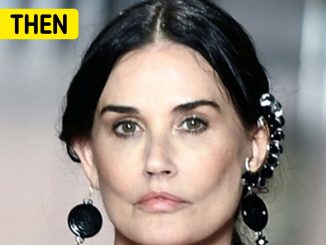Have you ever looked at a flight path on a map and wondered why airplanes take curved routes instead of flying in a straight line? Wouldn’t flying in a direct line be more fuel-efficient and faster? At first glance, it seems logical that a shorter distance would result in less fuel consumption, but in reality, aviation is far more complex.
Several factors determine flight paths, including the Earth’s shape, jet streams, weather conditions, and air traffic regulations. Let’s break down why airplanes rarely fly in a straight line and how their curved paths actually make flights more efficient.
The Earth’s Shape and the Great Circle Route

One of the biggest reasons airplanes don’t fly in a straight line is the Earth’s curvature. While we often view flight maps as flat, the Earth is a sphere, and the shortest path between two points is actually an arc called the Great Circle Route.
If you take a globe and use a string to connect two distant locations, you’ll notice that the shortest route often curves rather than follows a straight path. This is why flights from New York to Tokyo pass over the Arctic region rather than flying directly west across the Pacific Ocean.
Using the Great Circle Route helps planes save both time and fuel, even though it appears curved on a flat map.
Jet Streams and Weather Conditions Impact Flight Paths
Another key factor affecting airplane routes is jet streams—high-altitude wind currents that move at speeds of up to 200 mph (320 km/h). Pilots strategically plan routes to take advantage of these strong winds when possible.
Video : Why Airplanes Don’t Fly Straight
Flying with jet streams allows an airplane to get an extra push, helping it move faster while burning less fuel. Flying against a jet stream can slow down the plane significantly, increasing fuel consumption. Pilots often adjust routes to avoid strong headwinds, even if it means flying a longer distance.
Additionally, storms, turbulence, and severe weather conditions also play a role in determining flight paths. Airplanes may adjust mid-flight to bypass dangerous weather zones, thunderstorms, or areas with extreme turbulence.
Air Traffic Control and Flight Regulations
Air traffic isn’t a free-for-all where planes can just fly wherever they want. There are strict regulations set by aviation authorities and air traffic control (ATC) that dictate flight routes.
Some of these rules include restricted airspace, where certain areas, such as military zones, national security locations, and political zones, prohibit commercial flights from entering. Predefined flight corridors exist to avoid mid-air collisions, ensuring flights follow established air traffic lanes. Major airports handle hundreds of flights daily, so ATC ensures safe and efficient arrivals and departures.
Due to these regulations, airplanes cannot always take the most direct path and must follow designated routes instead.
Avoiding Air Turbulence for Passenger Comfort
Turbulence can make a flight uncomfortable, and pilots actively adjust routes to minimize rough air conditions. There are different types of turbulence, including thermal turbulence caused by warm air rising from the ground. Flying at higher altitudes helps avoid this.

Mechanical turbulence happens near mountains and rough terrains where wind patterns shift unpredictably. Clear-Air Turbulence (CAT) is sudden, strong air currents in high altitudes that are difficult to predict.
To ensure a smoother ride for passengers, pilots may deviate from the shortest path to avoid these turbulent areas.
Why Do Airplanes Sometimes Ascend Before Landing?
If you’ve ever been on a flight where the plane suddenly climbs just before landing, you might have felt a bit concerned. This maneuver is known as a go-around and is actually a common and safe aviation practice.
Some reasons why pilots perform a go-around include runway clearance issues. If another plane hasn’t cleared the runway in time, pilots must abort the landing and circle back. Poor weather conditions, such as poor visibility, strong crosswinds, or sudden gusts, can make a landing unsafe. If a plane is too fast, too high, or not properly aligned with the runway, the pilot will ascend and try again for a safer landing.
Go-arounds are standard procedures in aviation and ensure passenger safety above all else.
The World’s Longest Non-Stop Flight
While most flights follow curved paths, some routes push the limits of non-stop travel. The longest direct commercial flight in the world is from Singapore to Newark, New Jersey, USA.
This flight covers a distance of 10,400 miles (16,700 km) and takes approximately 18 hours and 45 minutes. It follows a carefully optimized path to balance fuel efficiency, wind conditions, and passenger comfort.
Video : Does Earth’s Rotation affect the Airplanes Speed & Flight Time
What Happens If a Plane Suddenly Loses Cabin Pressure?
A sudden drop in cabin pressure is often portrayed as a dramatic event in movies, but in reality, pilots are well-trained to handle it calmly.
When this happens, oxygen masks automatically deploy, and passengers should put them on immediately and breathe normally. The plane will descend to a safe altitude where oxygen levels are sufficient for breathing. The flight crew will assess the situation and communicate with passengers.
Losing cabin pressure doesn’t mean the plane will crash—pilots follow strict safety protocols to handle such incidents efficiently.
Final Thoughts: Why Curved Flight Paths Are More Efficient
While it may seem counterintuitive, airplanes take curved routes instead of straight lines to optimize flight efficiency, fuel usage, and passenger safety. Factors such as the Earth’s shape, jet streams, air traffic control, and weather conditions all play a crucial role in determining flight paths.
So next time you’re on a plane and see the route map displaying a curved flight path, remember there’s a lot of science and planning behind it to ensure you reach your destination as safely and efficiently as possible.
Impoverished Boy Assisted an Elderly Man in Achieving His Dream, Unaware His Own Life Would Transform the Following Day

I thought I was just going fishing with an old man I’d met by chance, but the letter I received months later revealed a secret that would leave me forever changed—and with a gift that would fulfill my wildest dreams.
Living in an old trailer wasn’t as bad as it sounds, or at least that’s what I told myself. It was just me and Mom. We’ve been on our own since Dad left when I was six. Honestly, I barely remember him, but Mom… well, she never says much about him. We don’t talk about it.
“Adam, can you grab the mail?” Mom would call out from the couch. Her legs were often propped up on a pillow, and she winced with every movement. She’d been in a car accident years ago, and her limp made standing or walking for long periods difficult. Still, she worked long shifts at the gas station just to keep us afloat.
“Sure, Mom,” I would reply grabbing my coat. I didn’t mind doing the little things to help. It made me feel like I was making a difference, even if it was just fetching mail or fixing dinner.
Most days after school, I would find something to do outside the trailer—anything to take my mind off things. But little did I know that at the age of 13, my life would change.
That day, I was tossing an old, deflated soccer ball at some bottles I’d set up like bowling pins. It wasn’t much, but it helped pass the time.
Then, out of nowhere, this shiny black SUV rolled up next to the trailer. The windows were tinted, and I stared at it for a second, wondering who on earth would come around here in something that fancy.
The door creaked open, and out stepped this old man, probably in his 70s or 80s, leaning on a cane but with a warm smile on his face. He waved.
“Hey there,” he said, slowly walking over. “Mind if I take a shot?” He pointed at the bottles I had lined up.
I blinked. “Uh, sure, I guess,” I said, not really sure what to make of him.
He chuckled. “Tell you what, let’s make it interesting. If I get a strike, I’ll ask you for a favor, and you can’t say no. But if I miss, I’ll hand you a hundred bucks. Deal?”
My eyes practically popped out of my head. A hundred bucks? I could almost hear the register in my brain ringing. “Deal,” I said quickly.
The man leaned down, picked up the deflated ball, and with a flick of his wrist, tossed it. The thing rolled straight into the bottles, knocking every last one down. I stood there, jaw dropped. No way.
The old man laughed, clearly pleased with himself. “Looks like I won,” he said. “Now, for that favor.”
I swallowed, curious. “What do you want me to do?”
“Come fishing with me tomorrow at the old pond,” he said, like it was the most natural thing in the world.
“Fishing?” I scratched my head. That was it? Seemed like a strange request, but definitely not as bad as I thought it would be. “Uh, okay, I guess. Let me just ask my mom.”
He smiled and nodded. “I’ll wait.”
I jogged back into the trailer, opening the door quietly. Mom was asleep on the couch, her chest rising and falling slowly. She’d had a long shift at the gas station the night before, and I didn’t want to wake her. I stood there for a moment, biting my lip.
“She won’t even know,” I muttered to myself. “I’ll be back before she notices.”
Decision made, I tiptoed back outside. “Alright, I’ll go,” I told the old man, hoping I wasn’t making a mistake.
“Great,” he said, smiling even wider. “We’ll meet tomorrow at dawn. Don’t be late.”
The next morning, the old man picked me up bright and early in his black SUV. We drove in silence at first, heading out of town. The place looked like no one had been there in years, the water was still, with tall grass growing around it. There wasn’t a single person in sight.
“Why here?” I asked, looking around as I grabbed the fishing rods he’d brought.
The old man smiled softly as he set up the gear. “This place… it means a lot to me,” he said, his voice quieter than usual.
We cast our lines into the water and sat side by side. We didn’t talk much for a while. But after about an hour, with no bites on the line, I couldn’t help but ask.
“So… why did you want to come here to fish?” I asked, curious.
The old man glanced at me, his smile tinged with sadness. “Years ago, I used to come here with my son. He was about your age then.” His voice softened even more.
“We were poor, just like you and your mother. Didn’t have much, but we always found time to come here. Funny thing is, we never caught a single fish, no matter how hard we tried.”
I looked at him. “Where’s your son now?”
He was quiet for a long moment, staring out at the water. I noticed his eyes filled with tears.
“He’s gone,” the old man finally said, his voice heavy. “He got sick. The doctors said he needed an urgent operation, but I didn’t have the money. I couldn’t save him.”
I felt my chest tighten. “I’m sorry.”
He shook his head, blinking back tears. “That’s when I promised myself I’d never be in that position again. I worked, I hustled, I built myself up so I’d never feel that helpless. But… I never had another child.”
I didn’t know what to say at first, but something inside me knew what he needed to hear. I stood up, walked over to him, and placed a hand on his shoulder.
“Your son’s watching you from heaven,” I said softly. “And one day, he’ll see you catch that fish. You just can’t give up.”
He smiled at me, tears still in his eyes. “Thank you, Adam. You remind me so much of him.”
Just then, the float on one of our rods dipped suddenly into the water.
“Hey, the float!” I yelled.
The old man’s eyes widened, and we both grabbed the rod at the same time, pulling hard. But as we yanked, we both lost our balance, tumbling into the pond with a loud splash. I gasped as the cold water hit me, and the old man surfaced beside me, laughing like he hadn’t in years.
“Well, this is one way to catch a fish!” he cackled, struggling to hold onto the rod while I helped pull him up.
We finally managed to drag the rod back to shore, and to our surprise, attached to the end was the biggest fish I’d ever seen. The old man jumped to his feet, soaking wet but grinning like a kid.
“We did it!” he shouted, throwing his hands up in triumph. “We actually caught one!”
I couldn’t help but laugh, watching him dance around like he’d just won the lottery. We were soaked to the bone, but in that moment, it didn’t matter.
Later, he drove me back to the trailer. As we pulled up, he turned to me, his face soft and filled with gratitude.
“Thank you, Adam,” he said, his voice thick with emotion. “Today meant more to me than you’ll ever know.”
I smiled back. “Thanks for taking me fishing. It was fun.”
He reached out and patted my shoulder, a tear sliding down his cheek. “Take care, son. And don’t give up on those dreams.”
With that, he drove off, leaving me standing there with a strange warmth in my chest.
The next day, there was a knock on our trailer door. I opened it to see a man in a suit standing there, holding a package.
“Adam?” he asked.
“Yeah, that’s me,” I said, eyeing the man suspiciously.
“I’m Mr. Johnson, Mr. Thompson’s assistant. He asked me to deliver this to you,” he said, handing over the package.
I opened it right there on the spot and inside was more money than I’d ever seen in my life. My jaw dropped. “W-what is this for?”
Mr. Johnson smiled kindly. “It’s for you and your mother. Enough to move into a proper house, and for her medical care—rehabilitation, so she can walk without pain. There’s also a provision for private tutors to help you prepare for college. Your education, including one of the best colleges in the country, will be fully covered.”
I couldn’t believe it. My head spun as I tried to process what he was saying. “But… why?”
“Mr. Thompson was very moved by you, Adam. He sees a lot of his own son in you. This is his way of saying thank you.”
Tears filled my eyes. I couldn’t speak, so I just nodded, overwhelmed by the kindness of a man who had once been a stranger but had now changed our lives forever.
Several months passed since that fishing trip. One afternoon, I came home to find a letter on the table, addressed to me. I recognized the handwriting instantly. My hands shook as I opened it.
“If you’re reading this,” the letter began, “then I’m already watching you from heaven with my son.”
I stopped, swallowing hard, and read on.
“The day after we went fishing, I had heart surgery. I didn’t survive, but that’s okay. Meeting you gave me more peace than I ever thought possible. You reminded me of my son and showed me there’s still joy in life, even after loss.
I’ve left you everything you need to succeed. Remember what you told me that day by the pond? You’ll catch that fish too—just don’t give up, right?”
I wiped a tear from my cheek, staring at the words. I could almost hear his voice again, and see him smiling next to me by the water.
Fifteen years later, I stood on the porch of the house I built for Mom, watching her laugh with my kids in the yard.
“You never gave up, Adam,” she said, catching my eye with a smile. “He’d be proud.”
“I think about him a lot,” I admitted, my voice soft. “I hope I’ve made him proud.”
“You have,” she said gently. “He gave you everything, and look at you now.”
I smiled, glancing at my own home next door. “It wasn’t just the money, Mom. It was the reminder to never give up. I’ll carry that with me forever.”
She squeezed my hand. “And he’s watching. I know it.”



Leave a Reply